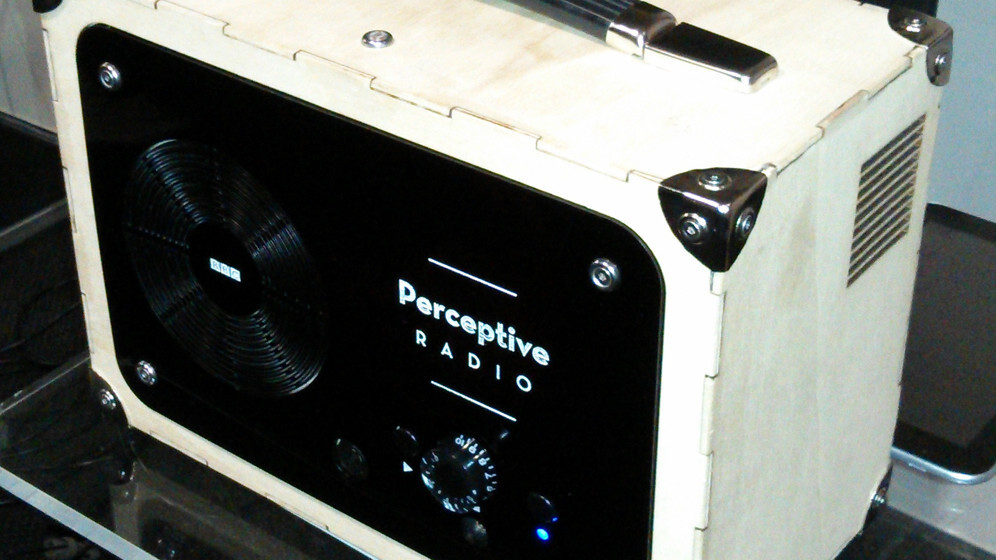
The BBC has developed an experimental piece of hardware called the Perceptive Radio, that adjusts the content it plays based on a wide range of circumstances, such as location, time, a user’s proximity to the device and background noise in the environment in which it’s being used..
The device was unveiled today at the Thinking Digital conference in Gateshead, UK and builds upon the Perceptive Media project that the BBC announced last year.
Perceptive Media adjusts content for each audience member based on their specific circumstances. The only demo content announced so far is a radio play that adjusts the location in which it’s set, the weather and other factors depending on where and when it’s listened to.
The radio shown off today includes a light sensor, proximity sensor and a microphone that can influence the content it plays. The proximity sensor is currently used to adjust the audio mix of the radio play, adding or removing background sound effects depending on how close a listener is to the device.

The BBC’s Ian Forrester has been working on the Perceptive Radio project at the Future Media & Technology department in Salford, UK. He said today that the radio set will soon be tested in homes to see how it can be applied in real-world scenarios. One content idea that Forrester suggested for the device, which streams audio over a WiFi connection, is a ‘karaoke drama’, which could incorporate audience engagement via the microphone. He added that an accelerometer had been discussed as a possible additional sensor to influence content based on whether or not the device was moving. (Update: It’s worth noting that the Perceptive Radio was a collaboration between the BBC, Mudlark, MCQN and Deferred Procrastination).
Personalized advertising is one compelling possibility for future commercial uses of Perceptive Media. Imagine a TV ad that tweaks its messaging based on your Facebook Likes, for example. Despite the BBC’s non-commercial status, that’s certainly a possibility – the Perceptive Radio design will soon be open-sourced, and most of the Perceptive Media source code is already freely available on GitHub.
Get the TNW newsletter
Get the most important tech news in your inbox each week.




